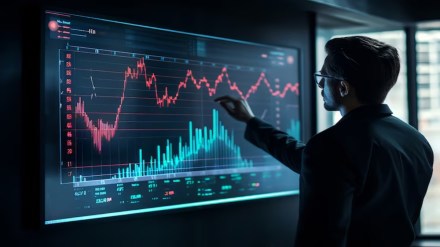The markets started today’s trading session on a positive note. The markets in the initial hours of the trading extended gains on hopes around GST 2.0 reforms. But this early optimism fizzled out quickly during the intra-day trading session.
By mid-session, both the headline indices, Sensex and Nifty slipped into the red. At the time of writing, Sensex was trading down 0.32%, while Nifty slipped 0.14%
Let’s take a look at the 3 key reason why the market is falling –
Sectoral pressure drags markets lower
In today’s trading session, the biggest drag came from sectoral weakness. Realty and IT stocks bore the brunt, with the Nifty Realty index and Nifty IT losing nearly 2% each.
Furthermore, the FMCG shares also faced sharp profit booking after a strong five-day winning streak, pushing the sectoral index down by 1.55%.
Other pockets such as pharma, PSU banks, energy, infra, and metals also traded weak, though losses were relatively contained.
Broader markets show signs of caution
It was not just the frontline indices under pressure. The broader market too reflected nervousness.
Both the Nifty Midcap 100 and the Nifty Smallcap 100 slipped around 0.15%. On a similar note, the BSE small and midcap were also trading down. The BSE midcap was down 0.22% in the intraday trading session. The valuation worries have been a constant concern for investors.
Global and domestic worries ahead of Q2 earnings
As Q2FY26 draws near, investor sentiment has turned cautious amid a mix of domestic and global pressures. Persistent US tariffs have cast a shadow on India’s export outlook, while foreign portfolio flows remain volatile.
“The market had partly discounted the GST reforms earlier. The high valuations even amidst geopolitical and tariff-related headwinds helped bears to accumulate short positions in the market. The sustained massive buying by mutual funds in equity has touched Rs 70,500 crores in August. With high money muscle facilitated by the sustained fund flows into the market, mutual fund buying will support the market during declines,” said Dr. VK Vijayakumar, Chief Investment Strategist at Geojit Investments.
